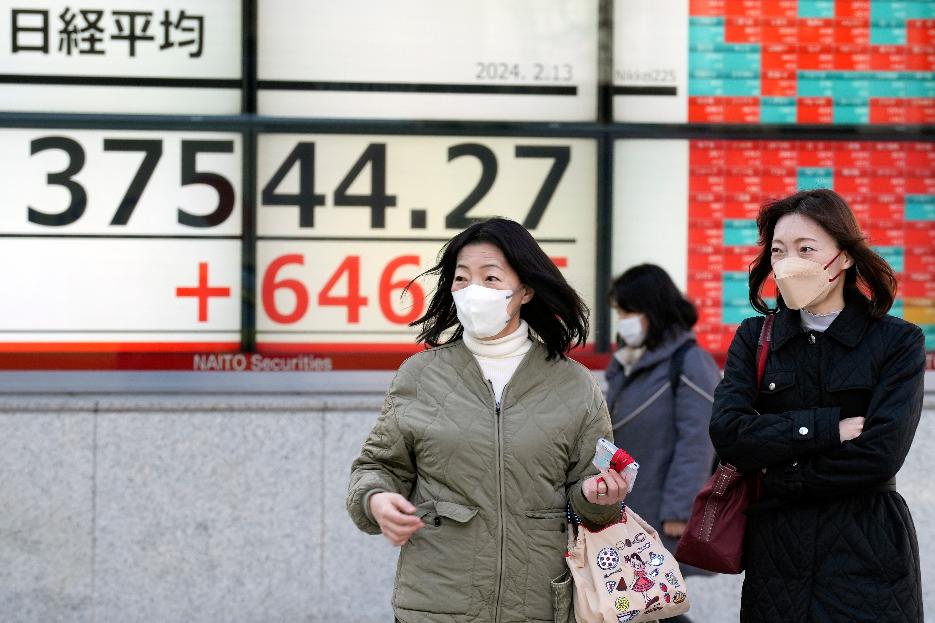The recent surge of over 3% in the Nikkei index reflects a significant rally in Japanese stocks, contributing to broader gains across Asian markets. This upward momentum is particularly noteworthy as it occurs on the eve of crucial U.S. inflation data, which has profound implications for global economic conditions and investor sentiment. The positive performance of the Nikkei can be attributed to several factors, including robust corporate earnings reports from major Japanese firms and a generally optimistic outlook on Japan's economic recovery post-COVID-19.
Moreover, the buoyancy in Japanese equities is symptomatic of larger trends observed in Asian markets, where investor confidence appears to be strengthening amid signs of resilience in regional economies. As central banks around the world grapple with inflationary pressures, market participants are increasingly attuned to macroeconomic indicators that may signal shifts in monetary policy. In this context, Japan's ability to maintain steady growth while managing inflation effectively positions it favorably relative to its global counterparts.
Japanese shares returned from a holiday with a bang on Tuesday, erasing all of last week's losses as a stable yen provided relief to wary investors, with a slew of U.S. data this week set to sharpen market views on the Fed's next move.
U.S. producer price data are due later in the day and will likely sway markets before focus switches to consumer price index data for July scheduled for Wednesday. The retail sales report on Thursday rounds up the data dump this week.
The momentum was largely driven by the country’s technology and financial sectors, with Rakuten Group and Trend Micro leaping 9.22% and 6.37%, respectively.
The country’s parliament plans to hold a special session next week to discuss the Bank of Japan’s decision to raise interest rates last month, Reuters reported, citing government sources.
Japan’s producer price index rose 3% in July from a year earlier, climbing at a faster pace compared to 2.9% in June.
South Korea’s Kospi climbed 0.12% to wrap the session at 2,621.50, while the small-cap Kosdaq lost 1.02% to end at 764.86.
After last week’s turmoil, markets are focused on Wednesday’s US consumer price index to see if the Fed will have a freer or more constrained hand in to secure a soft landing for the economy. The recent rally in crude oil prices also puts the spotlight producer-price numbers later Tuesday, as an indicator of pipeline inflationary risks.
As investors await U.S. inflation data, which could have cascading effects on interest rates and stock valuations internationally, the current rise in the Nikkei serves as a barometer for market sentiment within Asia. Should inflation readings align with or defy expectations, they will likely dictate subsequent market movements not only domestically but also across other Asian economies reliant on trade with Japan and the United States. Thus, understanding these dynamics becomes essential for comprehending both immediate market reactions and longer-term economic trajectories.
Read more
Trump-Musk conversation marred by tech issues, Musk tries to help AI Pin Device Failure, detailed analysis of the factors that led to its failureSarah H
Also on site :
- U.S. Oil Exports to China Set to Stop Amid Tariff War
- Trump walked back his tariff rollout. But is the damage already done?
- Shipping giant Maersk, a bellwether for global trade, pops 12% on Trump's tariff pause

